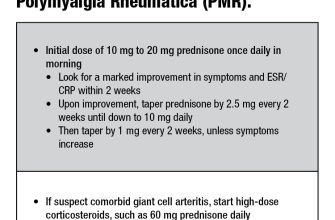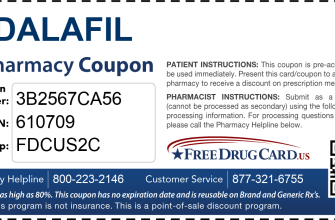Ovarian twinges while taking Clomid are common. Expect mild to moderate discomfort, often described as a pulling or aching sensation. This usually indicates the medication is working, stimulating follicle growth. However, severe pain warrants immediate medical attention.
Pain intensity varies. Some women experience barely noticeable discomfort; others report more intense, though still manageable, twinges. The location is typically in one or both ovaries. The pain may be constant or intermittent, fluctuating throughout the day. Monitoring its severity and location is helpful for reporting to your doctor.
Managing mild discomfort often involves simple strategies: over-the-counter pain relievers like ibuprofen or acetaminophen can provide relief. Applying a warm compress to your lower abdomen might ease the discomfort. Rest and avoiding strenuous activity can also significantly help. Regular communication with your fertility specialist is vital; they can assess your symptoms and adjust treatment if necessary.
Remember: While ovarian twinges are frequently a sign of Clomid’s effectiveness, persistent or worsening pain requires immediate medical consultation. Don’t hesitate to contact your doctor for any concerns; your health is paramount.
- Twinges in Ovaries on Clomid: Understanding the Experience
- Managing Discomfort
- When to Seek Medical Attention
- Understanding Ovarian Twinges: What’s Normal and What’s Not
- Distinguishing Normal from Concerning
- When to Seek Medical Advice
- Managing Mild Discomfort
- When to Contact Your Doctor: Recognizing Warning Signs
- Managing Discomfort: Tips and Strategies for Relief
- Lifestyle Adjustments
- Other Helpful Techniques
Twinges in Ovaries on Clomid: Understanding the Experience
Clomid stimulates your ovaries to produce multiple eggs, causing ovarian enlargement. This growth can lead to mild to moderate twinges or aches. Think of it like a slight stretching or pressure sensation. These feelings are usually harmless and often a sign that the medication is working.
Managing Discomfort
Managing discomfort is straightforward. Over-the-counter pain relievers like ibuprofen or acetaminophen can provide relief. Applying a warm compress to your lower abdomen may also ease the twinges. Rest and avoiding strenuous activity can help too. If pain becomes severe, or you experience sharp, stabbing pain, contact your doctor immediately. This is important to rule out other issues.
When to Seek Medical Attention
While mild twinges are common, severe pain warrants immediate medical attention. This includes intense, persistent pain, pain accompanied by fever or vomiting, or sudden, sharp pain. Your doctor can assess the situation and provide appropriate care. Regular communication with your healthcare provider throughout your Clomid cycle is recommended.
Understanding Ovarian Twinges: What’s Normal and What’s Not
Minor ovarian twinges during Clomid treatment are common. Think of it like a mild cramp – a dull ache or a sharp, fleeting pain. These usually aren’t cause for concern.
Distinguishing Normal from Concerning
However, knowing when to contact your doctor is crucial. Differentiate between normal discomfort and something more serious using these guidelines:
- Mild Pain: A brief, manageable ache or pressure in your lower abdomen, possibly radiating to your back or thighs. This usually subsides without medication.
- Severe Pain: Intense, sharp, or persistent pain that doesn’t improve with rest or over-the-counter pain relievers. This warrants immediate medical attention.
- Accompanying Symptoms: Pay attention to other symptoms like fever, vaginal bleeding, or nausea. These can indicate a more serious problem.
When to Seek Medical Advice
- Intense Pain: If pain significantly impairs your daily activities or is severe enough to require strong painkillers, consult your doctor immediately.
- Persistent Pain: Pain that lasts for more than a few days, even if mild, deserves attention.
- Unusual Symptoms: Fever, vaginal bleeding, or severe nausea alongside ovarian twinges require immediate medical evaluation.
- Rapid Ovarian Enlargement: If your doctor suspects ovarian hyperstimulation syndrome (OHSS), which causes ovarian swelling, monitor for sudden weight gain, abdominal distension, or shortness of breath.
Remember, open communication with your healthcare provider is paramount. Don’t hesitate to discuss any concerns, no matter how minor they may seem.
Managing Mild Discomfort
For mild twinges, consider these self-care measures:
- Rest
- Gentle heat application
- Over-the-counter pain relievers (like ibuprofen or acetaminophen, as directed by your doctor).
When to Contact Your Doctor: Recognizing Warning Signs
Contact your doctor immediately if you experience severe or persistent ovarian pain, especially if it’s accompanied by fever, chills, or vaginal bleeding.
Sharp, sudden pain in your lower abdomen warrants immediate medical attention. This could indicate a problem like ovarian torsion or rupture.
Pay close attention to changes in your vision, such as blurred vision or light sensitivity. These symptoms, alongside ovarian pain, require prompt medical evaluation.
Report any shortness of breath or chest pain. These are serious symptoms that need immediate assessment.
If you notice significant swelling in your legs or abdomen, contact your doctor right away. This might signal a complication requiring medical intervention.
Don’t hesitate to call your doctor if you have severe nausea or vomiting that doesn’t subside. Persistent vomiting can be a sign of a serious problem.
Finally, any unusual vaginal discharge, especially if it’s foul-smelling or discolored, necessitates a doctor’s visit.
Managing Discomfort: Tips and Strategies for Relief
Apply a heating pad or warm compress to your lower abdomen for 15-20 minutes at a time. Gentle heat can soothe cramping. Consider over-the-counter pain relievers like ibuprofen or naproxen sodium, following the package directions carefully. These can help reduce inflammation and pain.
Lifestyle Adjustments
Stay hydrated by drinking plenty of water throughout the day. Dehydration can worsen cramping. Engage in light exercise like walking or yoga; moderate activity can ease discomfort. Prioritize rest; adequate sleep helps your body recover and manage stress, which can affect pain levels. Avoid caffeine and alcohol, as these can exacerbate symptoms.
Other Helpful Techniques
Practice relaxation techniques such as deep breathing exercises or meditation to manage stress and pain. Consider a warm bath or shower; the soothing warmth can help relax your muscles. If pain persists or worsens, consult your doctor or fertility specialist. They can assess your specific situation and recommend appropriate treatment.





